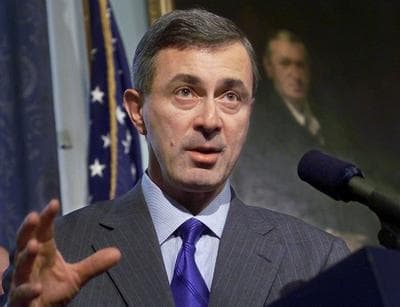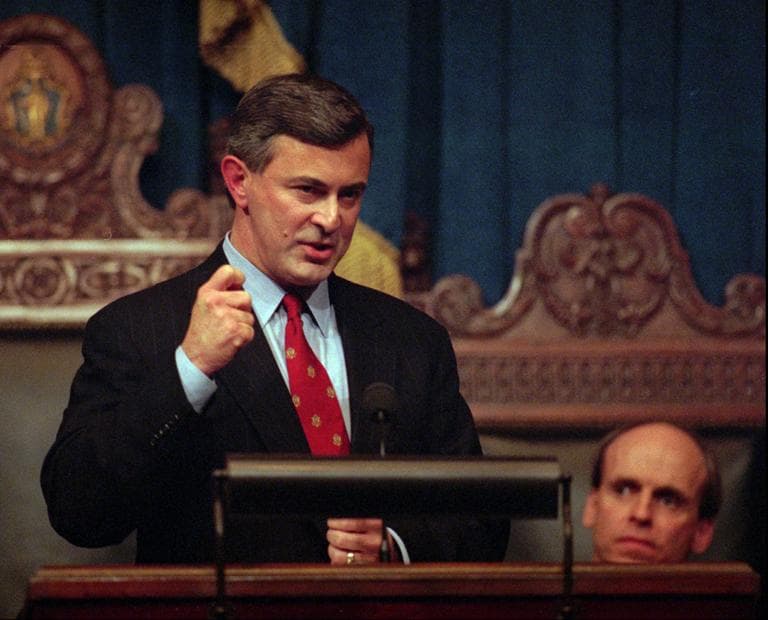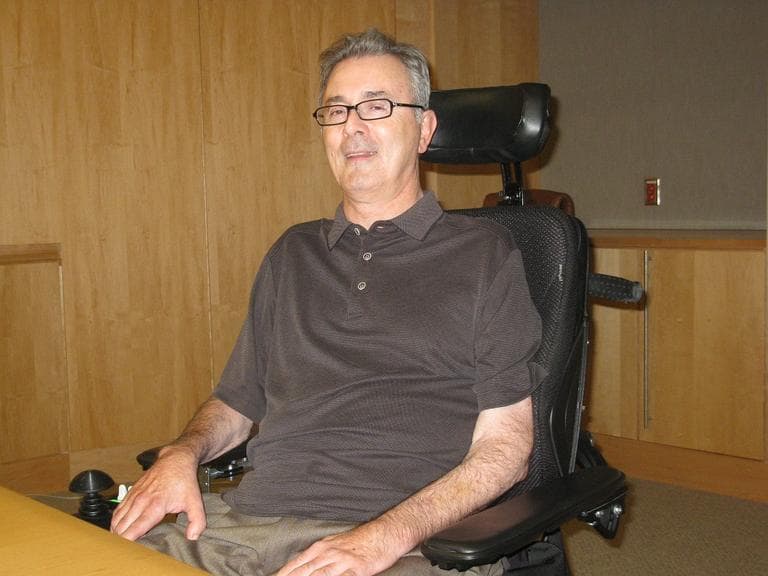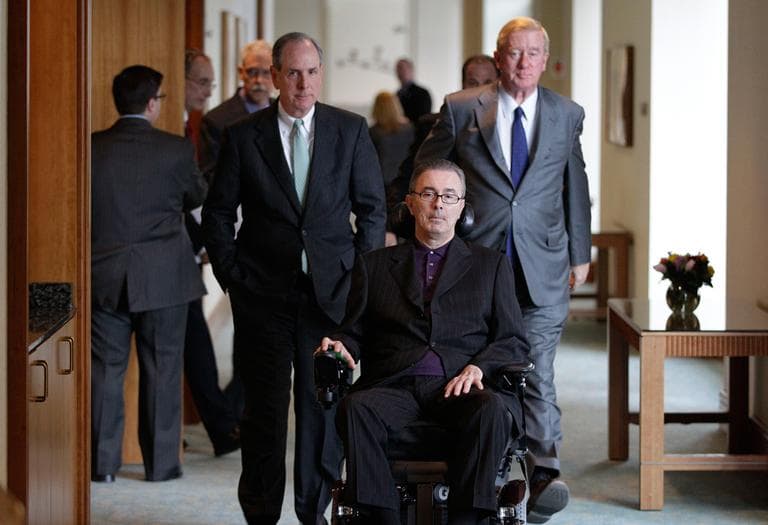Advertisement
Remembering Former Mass. Gov. Paul Cellucci

Former Massachusetts Gov. Argeo Paul Cellucci died Saturday, at home, from complications related to amyotrophic lateral sclerosis (ALS), also known as Lou Gehrig's Disease. He was surrounded by friends and family. Cellucci, a Republican, was 65.
The Start Of A Long Political Career
Cellucci began and ended life in the small, central Massachusetts town of Hudson. His father owned an Oldsmobile dealership and was a community leader.
Lifelong friend Robert Durand, who served as Cellucci’s secretary of environmental affairs, said his boss got into politics when he was 20 and still a student at Boston College.
"The drive for public service came out of the era that all of us grew up in with the Kennedys," explained Durand. "Paul joined the charter commission in town, and that was the beginning of a career that ended up in the governor's office and on to becoming ambassador for the Bush administration."
'Working Person's Governor'

As he moved from the Hudson charter commission to the governor’s office to Ottawa where he was the U.S. ambassador to Canada, Cellucci impressed people as a compassionate man devoted to his town, state and country. And he was a nice guy.
State Sen. Ben Downing, a Democrat, was a teenager when he met Cellucci and struck up a conversation.
"He was just a kind and caring person and was the exact same way to me when I met him again the day I was sworn into the Senate," Downing said.
Even when the gun lobby disagreed with Cellucci's support for a strict assault weapons ban or when he pushed to reinstate the death penalty in Massachusetts, advocates and legislators believed he was honest and genuine.
"Paul was looked at as the middle class, working person's governor," said House Speaker Robert DeLeo. "There were no airs about him. He knew how to communicate and to touch people's lives."
Advertisement
Nonpartisan Legacy
As ambassador to Canada, liberals in Ottawa sometimes bristled at security measures Cellucci pushed on behalf of the Bush administration. But in Massachusetts, Cellucci made many noticeably nonpartisan decisions.

Former Supreme Judicial Court Chief Justice Margaret Marshall said her nomination to lead the court is an example. Cellucci, a Republican, elevated Marshall, an independent, over other Republican judges.
"He was not an ideologue, and he appointed judges who he thought would best serve the commonwealth," she said. "That is one of the many, many, many indications of why Paul Cellucci was such a great public servant."
Another, said Marshall, is the way Cellucci opened doors for women. He made Marshall the first female head of the state judiciary and paved the way for Jane Swift to became the first female acting governor. Marshall suspects that Cellucci's wife Jan and his two daughters were a strong influence.
"I don’t think there was a single occasion when I was with the governor where he didn't mention his two daughters to me," Marshall recalled. "And I used to tease him and say the reason why he had appointed me as the chief justice was that he couldn't bear to face those three women over the dinner table if he appointed another man."
Cellucci spoke to WBUR last summer about work that made him proud.
"I think we pretty much put a stake through the old label of 'Taxachusetts,'" said Cellucci, his voice halting. "And I'm also pretty happy that despite all the controversy, the Big Dig is an engineering marvel. It's transformed the city of Boston and it's improved the traffic flow, particularly going out to Logan Airport."
Battling ALS
In that same interview, four years into his illness, Cellucci maintained his optimism.

"I wake up every morning and see the sun," he said. "I get to play with my grandkids. I get to work with my business projects. You end up having a great appreciation for all those things."
As ALS made Cellucci’s arms and legs weak and then useless, he focused on the things he could do. He launched a fund for cutting-edge ALS research at UMass Medical Center. UMass Medical Chancellor Michael Collins was impressed that Cellucci, given an incurable diagnosis, kept finding ways to be of service to the public. Cellucci called Collins a few weeks ago to say he wanted the fundraising campaign to continue after his death.
"Every one of us could understand why he might say, look it, I just can’t help anymore," Collins said, "That was not him. The example that he left us was that even in the most difficult times of his life he was going to do everything he could to help this effort succeed. I think that was an extraordinary example of public service."
State House leaders began planning tributes for Cellucci a few weeks ago. His body will lie in state in the Hall of Flags this week and there will be a memorial service in the House chamber.

This program aired on June 9, 2013.
